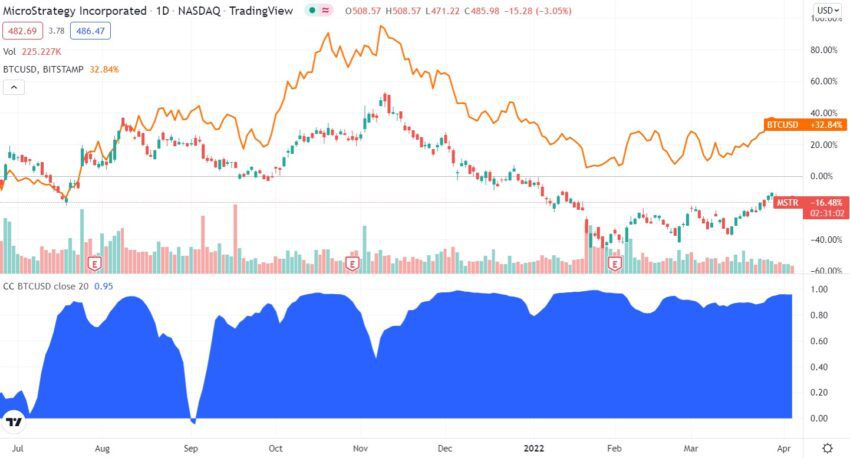
Listed business intelligence company MicroStrategy (MSTR) has purchased an additional lot of 4,167 Bitcoins, as per the company’s release on Tuesday.
Company chief Michael Saylor took to Twitter to say the purchase was made through MacroStrategy, a wholly owned subsidiary of MicroStrategy.
Putting loan to use?
The exchange notification reveals that the purchase was made between February 15 and April 4, 2022. For which, MacroStrategy paid around $190.5 million in cash, at an average price of $45,714 per Bitcoin, including all fees and expenses for the purchase. Now, the parent company reported that it holds a total of around 129,218 Bitcoins, with MacroStrategy holding approximately 115,110 of the total Bitcoins.
The company’s purchase announcement comes shortly after MacroStrategy LLC acquired a loan to accumulate more BTC. Silvergate Bank had issued a $205 million term loan to MacroStrategy in the form of Bitcoin-backed loans. And it looks like the company may already be using the loan for its stated use.
Now, the parent company has 111% of its market cap in Bitcoin, as per estimates by Bitcoin Treasuries. And, after today’s BTC addition, MicroStrategy controls 0.615% of the total Bitcoin supply. Up from the previous 0.5% of finite 21 million tokens reported last week.
It should be noted that MicroStrategy remains the largest public company to have BTC exposure at this point. Therefore, naturally, the price movement of BTC and MSTR usually has a strong and positive correlation.

At the time of writing, BTC is trading in the green at a price close to $46K.
No to bitcoin bonds
Meanwhile, Saylor, a renowned BTC proponent, is not putting his weight behind Bitcoin bonds at this time. The founder of MicroStrategy Inc. said in a recent interview, “I would like to see a day when people end up selling Bitcoin-backed bonds like mortgage-backed securities. The market is not quite ready for that right now. The next best idea was a term loan from a major bank.
In context to El Salvador’s Bitcoin bond, Saylor explained that it is a “hybrid sovereign debt instrument as opposed to a pure Bitcoin-treasury play.” Further adding that that has “its own credit risk and has nothing to do with the Bitcoin risk itself entirely.”


















